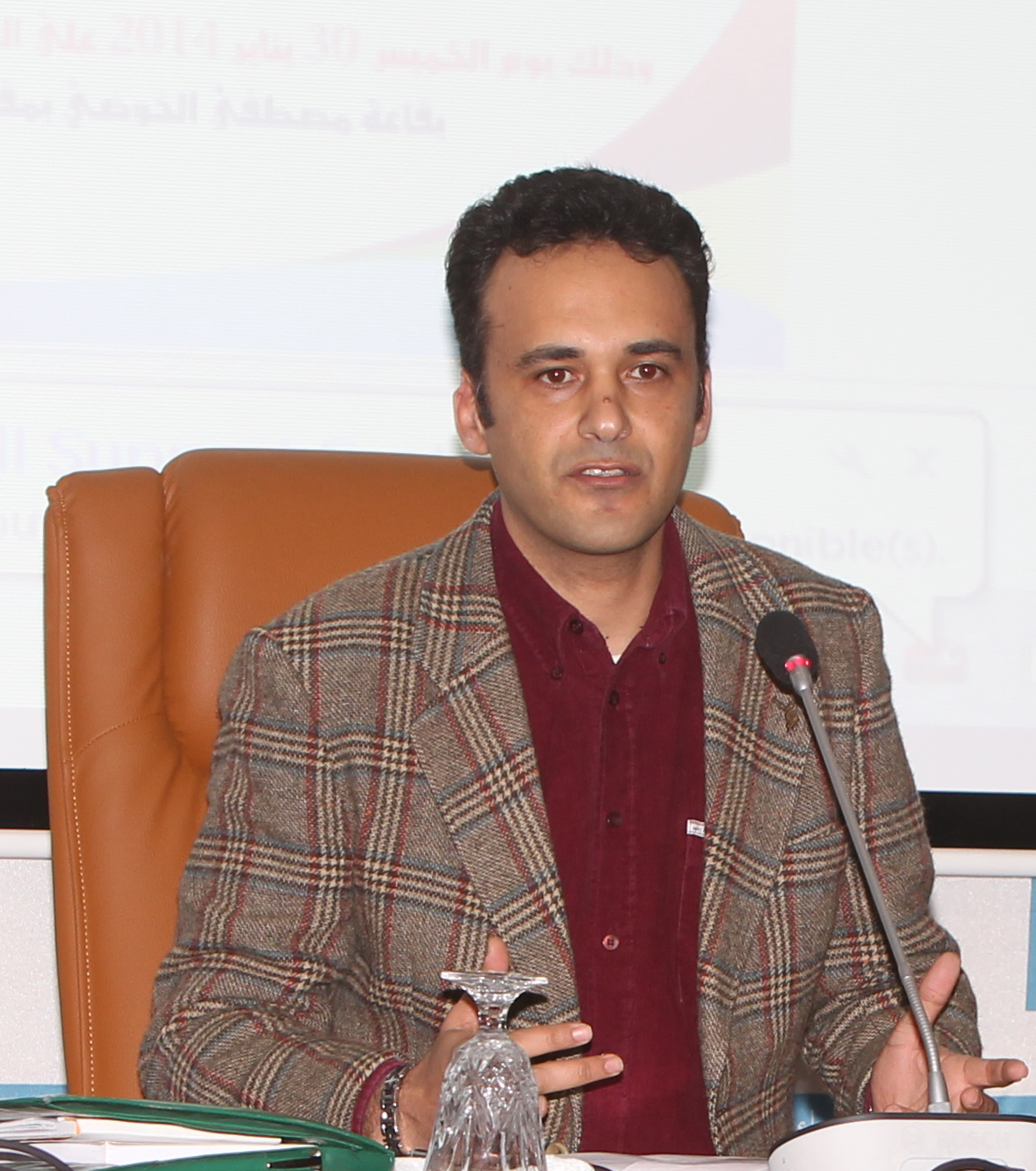طرح الصحفي الجريء أمام زمور نظريته العنصرية حول "الإحلال الكبير" (الإغراق الديموغرافي للعنصر الأجنبي وخصوصا المسلم)، ودعوته إلى إلغاء الأسماء الأجنبية ومنها العربية، واعتماد أسماء فرنسية لأبناء المهاجرين، تكريما لفرنسا وتعبيرا عن انتمائهم إليها. فيبادره المحاور: "قل، ماذا كرم المنتخب الفرنسي بمزيجه العرقي والديني حين فاز بكأس العالم؟"
يواصل الكاتب الصحفي الفرنسي الذي انتقد لسنوات فراغ السياسة في فرنسا وتهاونها أمام ما يزعم أنه اجتياح للإسلام جولته عبر محطات التلفزيون والإذاعات الكبرى، مروجا لكتابه الجديد "فرنسا لم تقل كلمتها الأخيرة". الكتاب كما يرجح كثيرون هو بمثابة برنامج سياسي للرجل الذي يريد أن يقفز من طور التنظير والتحريض إلى سدة الإليزيه لينفذ ما لم ينفذه السابقون: إغلاق الباب أمام المهاجرين واجتثاث الإسلام من فضاء الجمهورية.
قل ما شئت عن مصداقية الحجة ونظام القيم والتربة الأيدولوجية، لكن إيريك زمور أصبح رقما صعبا في الشاشة الفرنسية وساحة الجدل العام، اعتاد خوض المعارك مع خصوم من كل المشارب، بجرأة كاملة وشراسة مطلقة، وبلا تحفظ، وباستناد قوي على معرفة تاريخية وقدرة تحليلية يتفوق فيها على منافسيه.
تنبه البعض إلى أن الرجل ظاهرة من صناعة الإعلام المعروف بتخصيبه للخطابات اليمينية التي تفترس المجال العمومي الفرنسي، ملخصة أعطاب البلاد في "اجتياح" المهاجرين، والمسلمين خصوصا. هو اليوم على موعد يحتاج فيه إلى قدرات خاصة للخروج بأقل الخسائر؛ لأن الانتصار مطمح عسير المنال أمام ذلك "الوحش" الذي يسكن خلف الميكروفون.
نعم، يحث جون جاك بوردان ضيفه على إلقاء الجملة الأخيرة من إجابة غير مقنعة ليوهمه أنه سينتقل إلى موضوع آخر، وقد يباغته بصيغة جديدة لسؤاله السابق... "هل تعتقد ذلك فعلا؟" ليدس الشك في قناعات المتحدث... "إذن؟" ليستدرجه إلى خلاصات متسرعة سهلة الانكسار أمام السؤال الموالي.
أسئلة بوردان الذي يقدم برنامجه الصباحي "بوردان ديريكت" على إير إم سي وبي إم تي في، هي أسئلة مباشرة ودقيقة ومقتضبة، تنطلق غالبا من ملفات جزئية لمقاربة القضايا الكبرى، وتكون استنكارية ساخرة أحيانا. لكن قوته لا تقف عند ذلك؛ يصمم الإعلامي بنية متكاملة حين يستدرج الضيوف إلى لعبة حدد قواعدها سلفا، وجها لوجه، على طرفي مائدة يفصل بينهما حوالي متر، مسافة قريبة حاملة للتوتر والضغط والهشاشة أمام حركة مكثفة للغة والجسد، الإيقاع السريع للتفاعل ينهك القوى ويشتت التركيز، وفي اللهاث خلف الأسئلة تنبُت الفراغات والثقوب التي يترصدها ذهن متوثب وبديهة فائقة يشهد بها الخصوم الكثر للصحفي المحاور في المشهد الإعلامي الفرنسي.
وقد بدا فعلا أن إيريك زمور، الشرس ضد زملائه وضد السياسيين وضد العرب والمسلمين، لن ينجو من المطب في منعطف حساس من رحلته، طمعا في مغافلة الفرنسيين وركوب حنقهم على سياسيي اليمين واليسار والوسط، لخطف كرسي الرئاسة.
"أنا سعيد بأن أكون معك.. شكرا للدعوة"، لن تسعف الديباجة الودية غير المعتادة لزمور في توسل "معاملة مخففة" أو تهذيب أنياب المحاور المتحفز للأسئلة المحرجة.
كان إيريك طيلة الحلقة حريصا على أسلوب حِجاج معتدل، في موقف دفاعي، لا يغادر خانة توضيح مواقف صدرت عنه نفسه، يواجهه بها بوردان وهو ينتقي مقاطع كاشفة من الكتاب. كل كلمة شاردة سيضطر إلى "توضيحها" مجددا والتبرؤ من أبعادها؛ لأن بوردان يعيدها على أسماعه بدلالة تفضح التناقض أو التهافت.
ينظر بوردان إلى أوراقه، أو يتظاهر بذلك، ثم يخلخل توازن ضيفه بنظرة فاحصة حادة. يمط شفتيه، يشد صدغيه برسالة أقرب إلى الاستخفاف، ويضع ضيفه تحت رعب مقاطعة حديثه التي ستنزل كسيف ديموقليس، في أي وقت. يطرح أمام زمور نظريته العنصرية حول "الإحلال الكبير" (الإغراق الديموغرافي للعنصر الأجنبي وخصوصا المسلم)، حول دعوته إلى إلغاء الأسماء الأجنبية ومنها العربية، واعتماد أسماء فرنسية لأبناء المهاجرين، تكريما لفرنسا وتعبيرا عن انتمائهم إليها. فيبادره المحاور: "قل، ماذا كرم المنتخب الفرنسي بمزيجه العرقي والديني حين فاز بكأس العالم؟" فيجيب زمور مضطرا ومحشورا في الزاوية: "لقد كرم فرنسا".
لا مجال لاستخدام الألقاب. في الجلسة الحوارية الشهيرة التي اشترك فيها قبل سنوات مع زميله المشاكس الآخر إيدوي بلينيل، مدير موقع ميديابارت، الرائد في الصحافة الاستقصائية، أمام الرئيس الفرنسي إيمانويل ماكرون، يناديه هذا الأخير: "جون جاك بوردان"، فيرد بلكنة ساخرة: "نعم إيمانويل ماكرون". بلينيل نفسه بدا أكثر وداعة أمام بوردان الذي تسلم شرف تقديم الجلسة التلفزيونية الشهيرة مخاطبا ماكرون: "العديد من الفرنسيين يشككون فيك وفي اختياراتك، صبرهم ينفد، ألستم سوى واهم انبعث من قلب التاريخ؟ إلى أين تمضي؟ إلى أين تقودنا؟؟" ليمر مباشرة إلى سؤال مباشر عن ملف حي آنذاك: القصف الكيماوي للنظام السوري.
لا شيء في بدايات بوردان كان يبشر أو ينذر بهذه الظاهرة التلفزيونية المثيرة للجدل بين من يعتبره إعلاميا ذا نزوع شعبوي، بأسلوب صدامي مفرط، ومن يعده رمزا لتوهج الإعلام الحواري الحر والجريء، خصوصا أن الرجل يعزز حضوره السلطوي في الأستوديو بإلمام واسع بالملفات التي يطرحها وبحرص كبير على ضرورات الإعداد.
بمرور قصير عبر الجامعة، وبعدها مهن صغيرة سائقا وموظف تسويق وغير ذلك، يأمل الشاب بالالتحاق بصحيفة "ليكيب" رائدة الصحافة الرياضية في فرنسا، ويفشل. لكن تزكية من مدير إذاعة إر تي إل ستفتح له طريق ممارسة الصحافة الرياضية بهذه المحطة من 1976 إلى غاية 2000، حيث يغادرها ليلتحق في العام المولي بـ إر مي سي التي ما زال يطل منها على جمهوره حتى اليوم. إنه يقدم نموذجا لعصامية بارزة دون تكوين مهني متخصص لكن بتمرس في الميدان، وبذكاء وقدرة على تطوير الذات، تنقله من صحفي رياضي إلى محاور لأهم رجال السياسة في البلد، يهابونه لكنهم يراهنون على عبور في برنامجه يخول لهم صيتا واسعا. أما هو فيوصي من يطلبون نصيحته من شباب المهنة بالاعتماد على الرأسمال الثمين: الاستقلالية. لذلك يُعرَف جون جاك برفضه دعوات العشاء مع السياسيين. بعضهم يعتبره عدوا على غرار مارين لوبان التي وصفت تصريحا له بأنه "قذر"، حين شبه تنظيم الدولة باليمين المتطرف في كناية عن الانغلاق على الذات.
زوجة بوردان ليست إلا آن نيفا التي تعد من أشهر المراسلات اللاتي يجبن مناطق الحروب والاضطرابات. تذهب آن إلى حرب الرصاص وتصدر كتبا عن المآسي وامتهان الانسانية، بينما يهب جون جاك بوردان للقاء ساسة بلاده بشعور الذاهب إلى حرب مقدسة ضد ما يعتبره نفاقا وكذبا وفسادا مستشريا في النخبة.


















![Palestinian journalists attempt to connect to the internet using their phones in Rafah on the southern Gaza Strip. [Said Khatib/AFP]](/sites/default/files/ajr/2025/34962UB-highres-1705225575%20Large.jpeg)





















